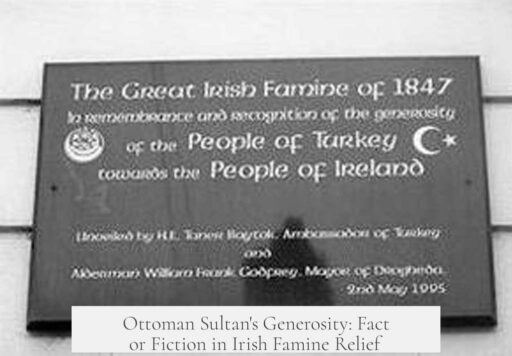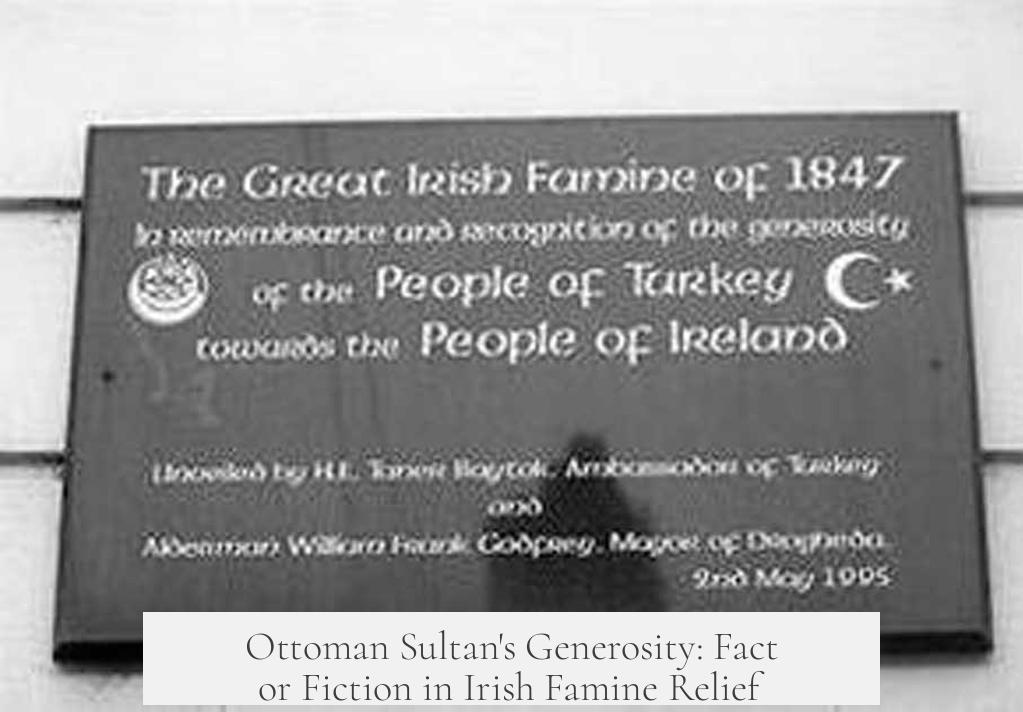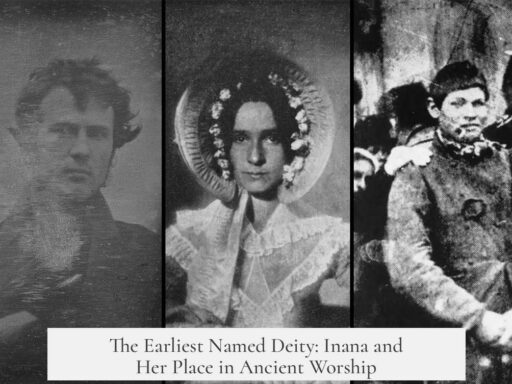The Ottoman Sultan Abdülmecid I did donate money to Ireland during the Great Famine, but no credible evidence supports the widely circulated story that he sent food aid via ships. His financial contribution ranged between £1,000 and £2,000, an act notable for the period and the circumstance.
The Great Famine in Ireland (1845-1850) caused massive starvation and death, with about one million people dying due to potato blight. This crisis occurred when Ireland was under British rule, and the British government, led by Queen Victoria, faced criticism for its insufficient response to the catastrophe. Within this context, the acts of international figures, including Sultan Abdülmecid I of the Ottoman Empire, gained attention.
Historical records confirm that Sultan Abdülmecid I sent a personal donation of funds — approximately £1,000, totaling up to £2,000 — to support Irish famine relief. Given the limited direct relations between the Ottoman Empire and Ireland, this gesture was considered an example of notable generosity. It reflected a humanitarian response during a time of widespread suffering beyond the Ottoman Empire’s borders.
The story that the Sultan dispatched three ships loaded with food to Ireland is largely regarded as myth. Some Irish folklore describes these ships as having had to navigate around a British naval blockade to deliver desperately needed food supplies. However, no solid historical proof exists to verify this claim. It remains an embellishment rooted in Irish cultural memory rather than documented fact.
The distinction between the Sultan’s donation and Queen Victoria’s response is a significant element in the story’s endurance. Reports and popular belief suggest Queen Victoria contributed a mere £5 to famine relief, which in stark contrast made Abdülmecid’s financial support appear magnanimous. This perception fueled nationalist sentiment in Ireland, emphasizing the Ottoman Sultan’s generosity and critiquing the British monarchy’s handling of the famine.
Some narratives propose that diplomatic considerations limited the Sultan’s aid. One version suggests he wished to donate up to £10,000 (equivalent to around £1 million today) but was advised it would cause diplomatic embarrassment to exceed Queen Victoria’s donation. Another suggests he reduced his gift for similar reasons, yet arranged for additional covert aid to bypass British oversight. These stories, while unconfirmed, illustrate the political complexities behind international aid during this period.
The severity of the Great Famine, combined with the political failings of British authorities, set the stage for tales of generosity to assume symbolic importance. The Ottoman Sultan’s donation, factual though modest, became a point of pride in Ireland and a rebuke of British indifference. This narrative powerfully endures in Irish culture and history even as some elements remain mythic.
| Aspect | Fact | Myth / Speculation |
|---|---|---|
| Donation by Sultan Abdülmecid I | Confirmed £1,000–£2,000 monetary donation | N/A |
| Food aid shipments | No evidence found in historical records | Three ships escorting food, breaking British blockade |
| Comparison to Queen Victoria | Victoria’s donation deemed minimal by sources | Exact amount debated, but folklore cites £5 |
| Diplomatic constraints | Partial speculation about reduced donation limits | Stories of covert additional aid sent secretly |
- The Sultan’s donation was a genuine, documented act of aid during the Irish famine.
- Food shipments attributed to the Ottoman Empire are unsubstantiated and part of Irish folklore.
- The Ottoman donation gained significance partly because of perceived insufficient British relief efforts.
- Diplomatic dynamics may have influenced the scale and visibility of Ottoman support.
- Famine conditions and British policy failures shaped the lasting impact of these aid stories.




